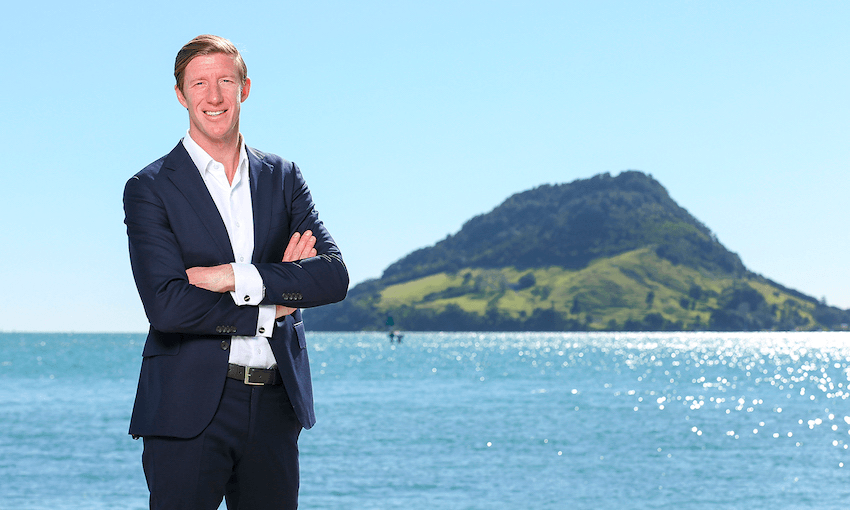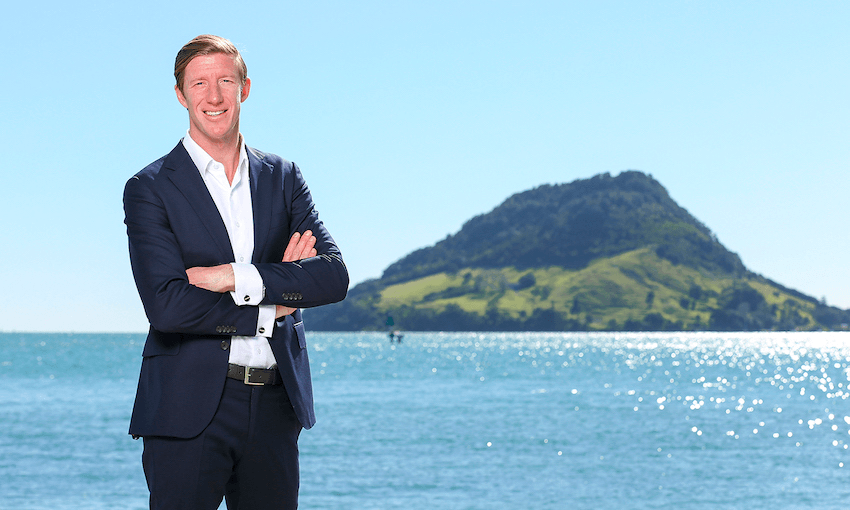Sam Uffindell has been selected by local party members as National’s candidate in the upcoming Tauranga by-election to replace departing MP Simon Bridges.
He was chosen ahead of three others at a selection meeting held in Tauranga today. The other contenders were former Tauranga City councillor Kelvin Clout, Western Bay of Plenty District Council analyst Tom Rutherford and Tauranga Business Chamber CEO Matt Cowley.
Uffindell is currently the head of financial economic crime at Rabobank and owns a small agribusiness based in the Bay of Plenty.
He spent 10 years in senior banking roles in Sydney, also gaining a masters in international law and international relations from the University of New South Wales. Before settling in the Bay of Plenty with his family last year, he was a vice president at Deutsche Bank in Singapore.
“I’m incredibly proud to have the opportunity to be a strong local voice for Tauranga and take up the fight for the issues that matter most to our city,” Uffindell said in a statement.
“Getting around town for work or family commitments is becoming harder thanks to poor infrastructure and a Labour government focused on cancelling and delaying crucial roading projects like the Tauranga Northern Link. Tauranga families are being hit hard by the cost-of-living crisis as Labour’s economic mismanagement causes the price of housing, food and fuel to explode. Our city deserves better.”
Uffindell will go up against Act’s Cameron Luxton and Labour’s Jan Tinetti in the by-election on June 18.



